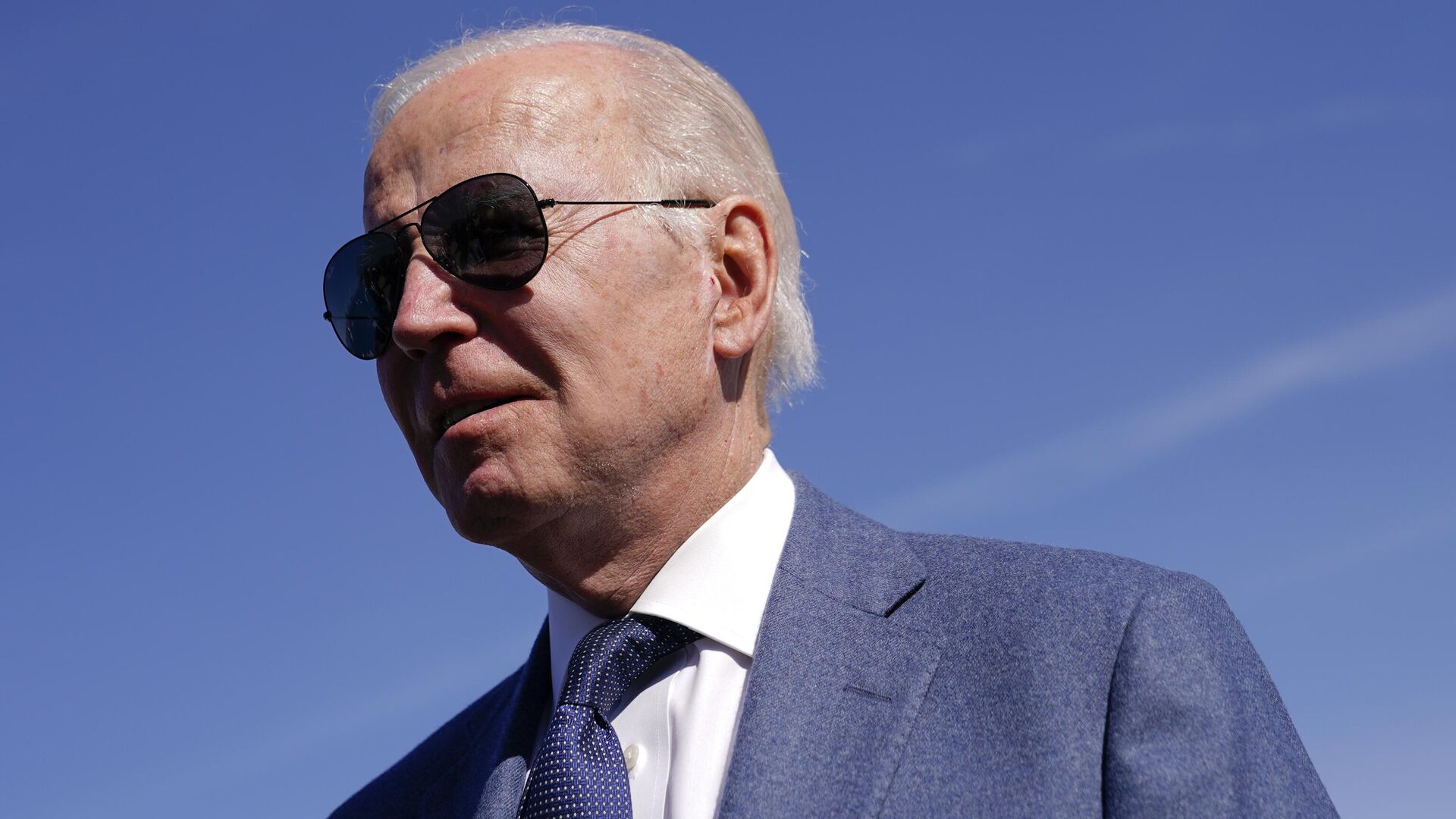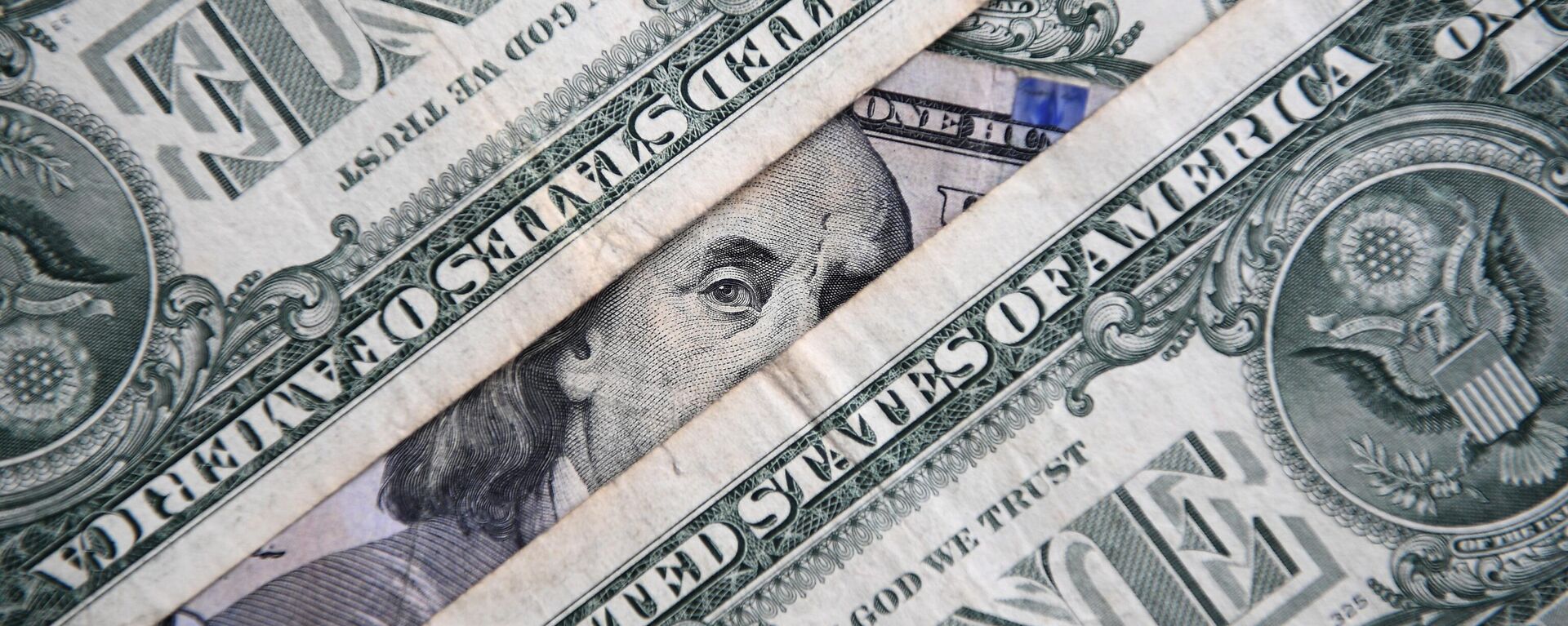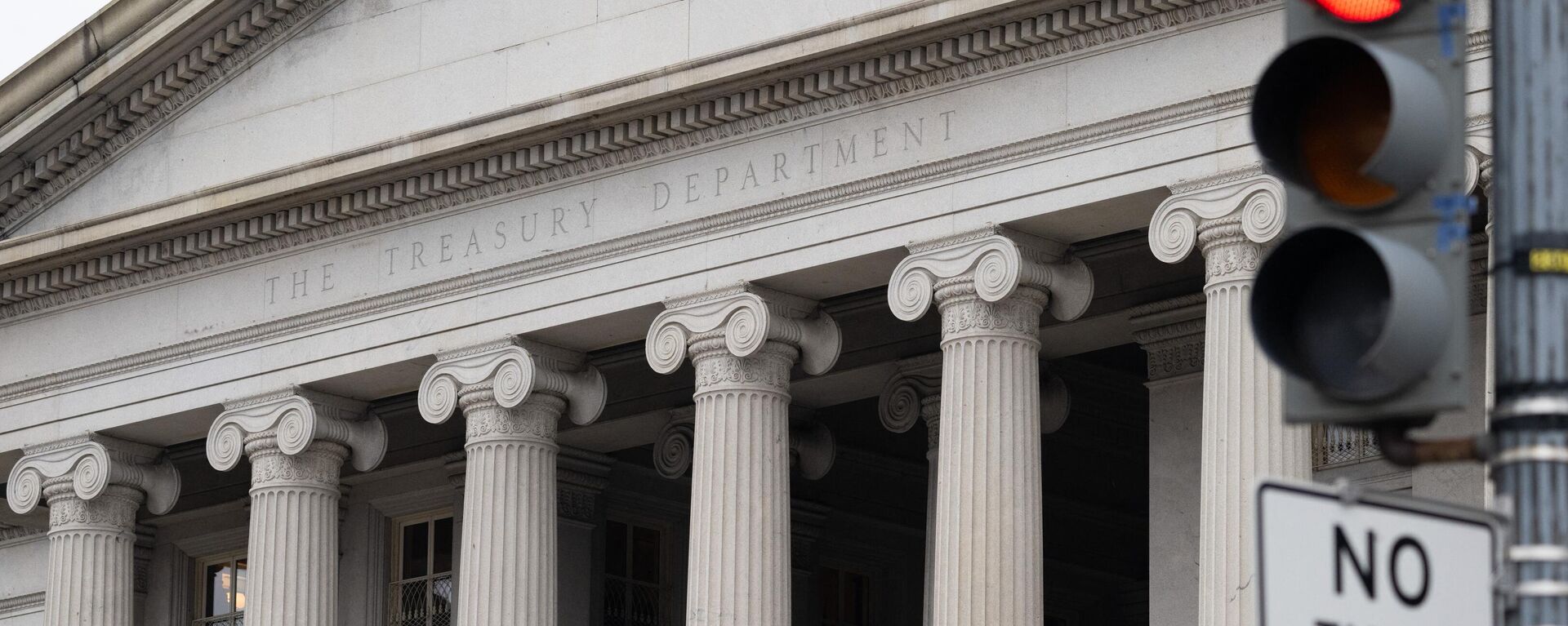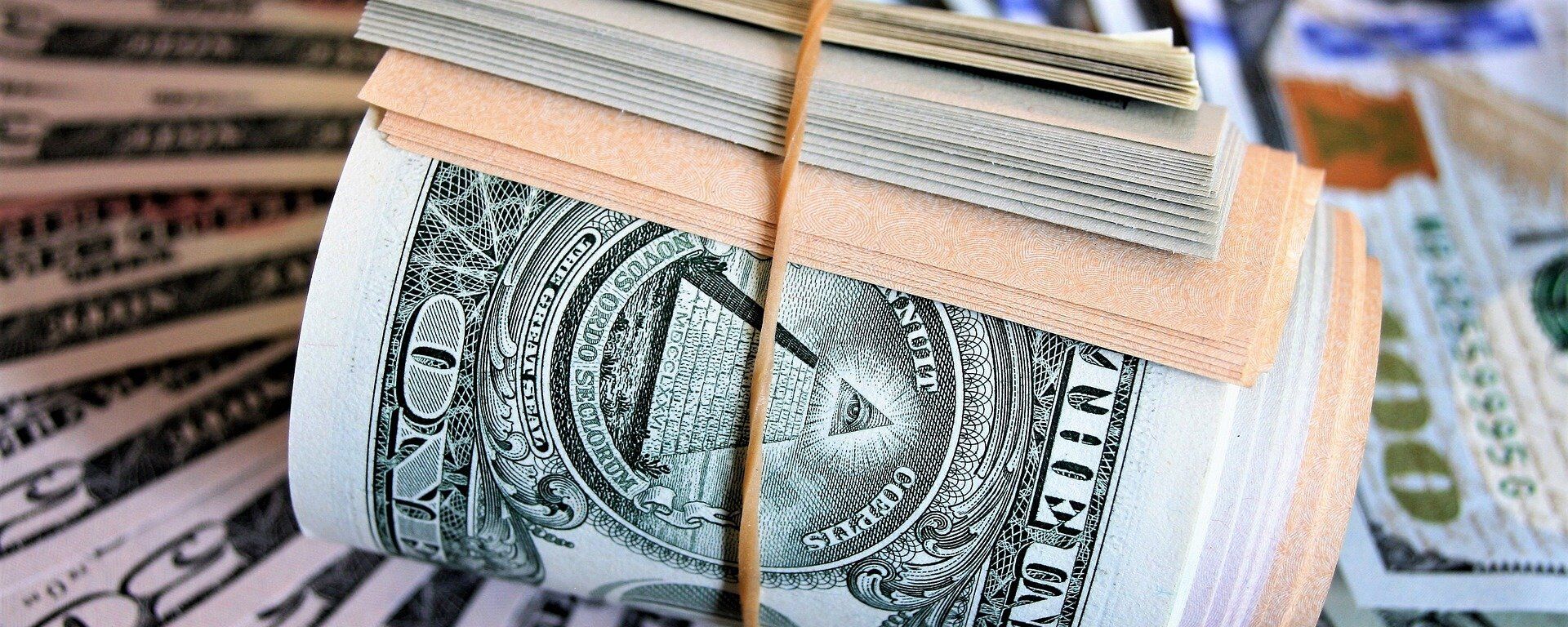Michael Hudson: Biden Admin Waging 'Class War' Against Working Americans

© AP Photo / Patrick Semansky
Subscribe
US President Joe Biden's economic policies have further enriched financial elites at the expense of working class Americans, Prof. Michael Hudson, US economist and former Wall Street analyst, told Sputnik's New Rules podcast.
Biden struck a debt ceiling deal with House Speaker Kevin McCarthy with a great deal of fanfare late last month following Treasury Secretary Janet Yellen's apocalyptic prognoses with regard to a US "imminent" default. According to Hudson, however, these dramatic warnings were meant to obfuscate the Biden administration’s real objectives.
"There was never any debt crisis at all," Hudson told Sputnik. "The government could have simply continued to pay its bills for projects that Congress had already approved, there is no way that the government was going to default on its Treasury debt because, after all, the Treasury debt is held by the wealthiest 10% and the government is not going to do anything that hurts the 10% and benefits the 90%."
Bipartisan Consensus on Wealth Transfer From the 90% to 10%
What really happened, as per economist, was a bipartisan agreement on a further redistribution of wealth from the 90% to the 10%. However, the Democrats could not just go for it as they have always positioned themselves as a pro-labor and pro-economic justice party. Hence, there had been a month-long "good guy-vs-bad guy wrestling match" between the president and the GOP, according to Hudson. Eventually, Biden "reluctantly" agreed on cuts to social programs, cancellation of support to the poor.
One should bear in mind that Joe Biden is from Delaware – a "state where most corporations in America have their head offices because the Delaware rules are so pro-corporate and anti-labor that corporations want to be there."
"It's all just a made up," Hudson continued. "When they talk about cutting back the government debt, what they mean is cutting back social services. They would like to do what Biden and [Barack] Obama wanted to do after 2009. They want to cut back Social Security. They want to privatize it as if that will somehow solve the problem. They want to cut back medical care. They want to cut back most social programs, so that the money that the government does spend will be exclusively to support the financial sector, the military sector, the insurance sector, and the real estate sector."
To illustrate his point Hudson referred to the fact that just a day after the debt agreement was struck and social programs were cut, some GOP congressmen, namely Senator Susan Collins from Maine, called for greater military spending to help fund the US proxy war in Ukraine. These military budget increases would come at the expense of US social programs, the economist pointed out.
Unsurprisingly, the debt ceiling deal came under fire from the Progressive Caucus in the US House of Representatives. Caucus leader, Rep. Pramila Jayapal, openly questioned COVID relief "clawbacks" as well as work requirements for the Supplemental Nutrition Assistance Program (SNAP) also known as "food stamps." Jayapal was among 46 Democrats who voted against the debt deal wrapped up as the Fiscal Responsibility Act last week in the House.
"What you're seeing is right now the class war is back in business in the United States," Hudson said. "This is class war with a vengeance that you're seeing and you're seeing labor being squeezed without really much to do. Local city and urban budgets are being squeezed throughout the country. That's one of the big problems -- the budgetary squeeze. You're having the banks being squeezed by the defaults on commercial real estate that they're exposed to, and the rising defaults on the personal debts that they're exposed to. So, the economy is really in trouble and when you have a crisis like this, fortunes are made from other people's distress. You're going to see a huge sucking up of money from the 90% of the population to the richest financial 10%."
For How Long May the US Keep Up 'Unlimited Spending'?
Given that the debt limit has been suspended through January 1, 2025, many observers are asking how much longer the US can keep up its seemingly unlimited spending. The US national debt is going through the roof, and the federal government budget deficit hit 1.1 trillion in the first half of this fiscal year. Meanwhile, the Congressional Budget Office (CBO) predicts that this problem is only going to get worse over the next decade as interest rates go up.
"As the debt is in its own currency, and as long as you print the currency, you can print however much you want," responded Hudson.
"You'll never default because you can just create the credit," explained the economist. "That's what the Federal Reserve did with its zero interest rate policy. It distorts the economy, and the economy can shrink and be torn apart. But the government can always pay its debt by simply printing the money. The problem that is tearing the American economy apart is not the government debt. It's the private debt that is leading to a default. And when you default on your debt, you forfeit your property to the creditors. So, what you're seeing now is a large-scale transfer of property, a transfer of real estate, a transfer of cars that people had bought but couldn't keep up the payments on, a transfer of income from the 90% to the 10%. And that's private debt. That's where the real problem is."
The crux of the matter is that the US government's goal is to help the top 1% at the cost of the 99%, per Hudson: "They want to cut back Social Security, Medicare, local social spending, support for local cities and states – everything that made America more democratic and strong in the past," the economist remarked.
Who is to Blame for Hollowing the US Economy Out?
To complicate matters further, the US bipartisan elite has offshored lots of blue collar jobs, promising Americans that they would instead get more advanced white collar jobs in finance and technology. However, Hudson pointed out that. Outsourcing manufacturing of goods and services to China and Asia could eventually hollow out the US economy, according to him.
"Finance is really not part of the economy," the analyst said. "Think of there being two economies in every country. You have the production and consumption economy, which often people call the 'real economy', making things and selling them and using them. And then you have the financial sector that provides credit for this. The financial sector lives in the short run."
"If your idea of getting wealthy is the market price of your houses and your stocks and bonds, then America was getting richer financially [over the past couple decades]. But it wasn't getting richer for the real economy. Real wages were not going up. You've had an enormous increase in the wealth of stocks and bonds owned by the wealthiest 10%, but the other 90% of the population owns just 10% of the stocks and bonds. They're dependent on working for a living and getting a paycheck. Their living standards have not gone up and their working conditions have gone way down and become much more tightened and unpleasant," Hudson continued.
What usually stops a situation like that is a political revolution, Hudson suggested. But as long as the US has a political system where it has only two parties that are really the same party, it can go on indefinitely because people will not have a political alternative to vote for, according to him.
"There is no alternative. You're going to have elections bouncing back and forth, from Republicans to Democrats to back. And yet neither of them are an alternative to the whole financialization of the economy that's been taking place really since World War Two and especially since the 1980s."
Both Democrats and Republicans are responsible for the present state of affairs; what's more, they appear to be determined to solve the debt problem by making Americans consume less and less, by living standards going down and down, by real wages going down and down, by social services being cut back more and more, by social security and Medicare being cut back more and more, according to the economist.
"That's the program of both American political parties," Hudson concluded.
For more of Prof. Michael Hudson's exclusive analysis on the US bipartisan debt ceiling deal, check out the full episode of the New Rules podcast.





